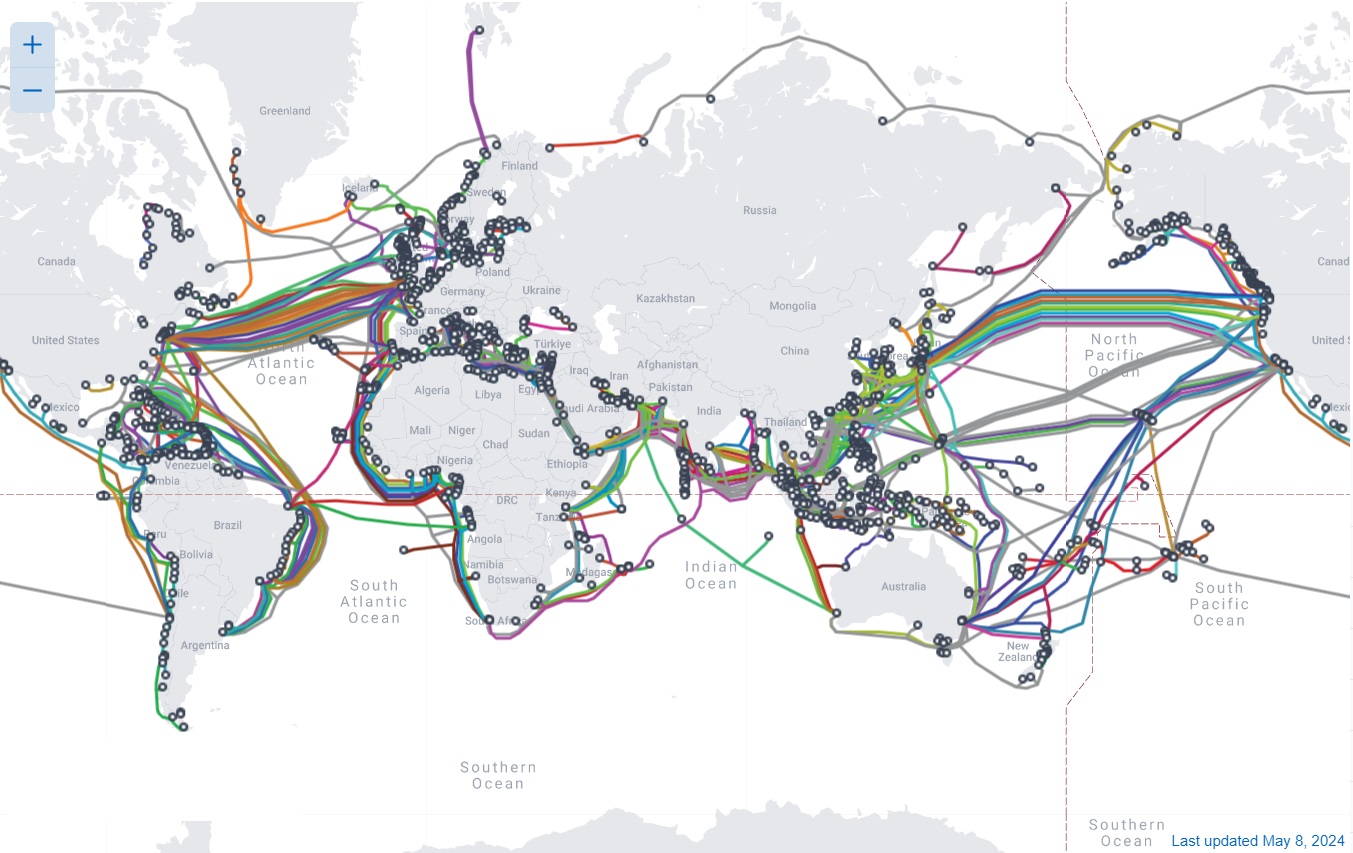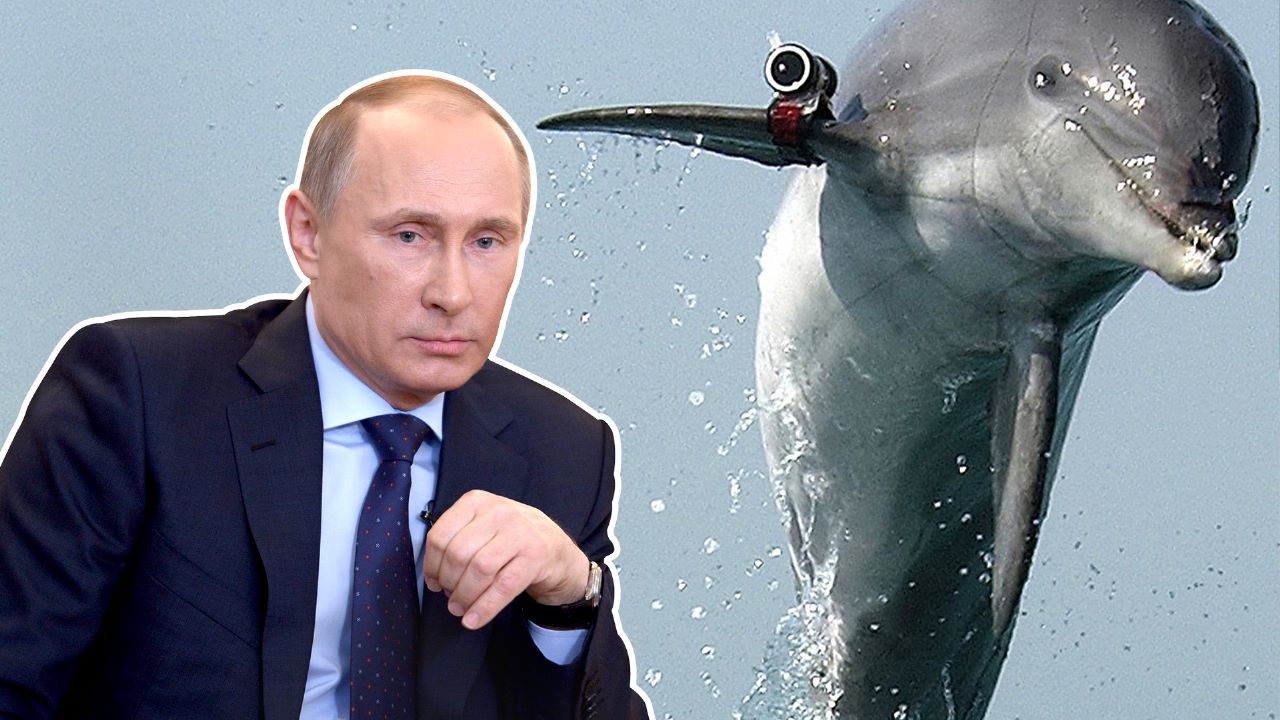In the depths of the world’s oceans, a murky game of espionage unfolds, with nations accusing each other of exploiting submarine cables for intelligence gathering and geopolitical maneuvering.
The latest accusation comes from China.
“Submarine cables have in recent years become a tool for some countries to steal intelligence information and even seek geopolitical interests,” stated China’s Ministry of State Security. Although no country was explicitly named, the implication was clear: China was pointing the finger at the United States.
This revelation follows the disclosure of materials by Edward Snowden, a former technical assistant for the CIA, indicating that the US National Security Agency has been conducting large-scale surveillance on global submarine cables through its ‘Upstream’ program alongside the ‘Prism’ initiative.
40-year-old Snowden is a prominent US whistleblower and advocate for privacy. In 2013, he leaked highly classified information from the National Security Agency (NSA), exposing numerous global surveillance programs. These programs were largely operated by the NSA and the Five Eyes intelligence alliance, with cooperation from telecommunications companies and European governments.
Now, as the world commemorates the 10th anniversary of Snowden’s disclosures, the former contractor-turned-privacy-
Concerns Over Chinese Espionage
However, the United States has been no stranger to leveling similar accusations at China. In May 2024, the Biden administration reportedly warned Silicon Valley giants such as Meta and Google, who have invested in submarine cables, about the potential threat posed by Chinese cable repair ships.
US officials are concerned that China could sabotage or tap undersea communications cables, which carry 95 percent of the world’s online traffic, to siphon information, from personal data to intellectual property and classified military intelligence.
Economy Flowing Undersea
Beneath the vast expanse of the world’s oceans lies a complex web of infrastructure that has become the lifeblood of the modern economy. Undersea cables, once a mere curiosity, have evolved into an intricate network that underpins our digital age, carrying the pulse of global commerce and communication.
As of early 2024, ‘ Telegeography’ has mapped the undersea landscape, revealing a staggering 574 active and planned submarine cables globally, spanning a combined length of nearly 1.4 million kilometers—a testament to the world’s insatiable appetite for connectivity.
However, this interconnectedness also makes the infrastructure vulnerable to various threats, including intelligence theft, accidental damage from human activities, deliberate sabotage, and geopolitical tensions.

Global Submarine Cable Network
At the heart of this undersea revolution lies the optical fiber communication system, a technological marvel that has transformed how we transmit and receive information. Utilizing fiber-optic technology, these modern cables offer unparalleled speed, reliability, and cost-efficiency, dwarfing the capabilities of traditional satellite links.
However, this undersea infrastructure is more than just a conduit for information; it is a strategic asset that underpins both economic and national security interests. As if the shadowy world of undersea cables and clandestine operations wasn’t murky enough, the specter of marine espionage looms large.
Remember ‘Beluga,’ the Russian Spy Whale? There is speculation that it is trained by the Russian navy for espionage. It’s a chilling reminder of the rising undersea infrastructure and the emerging threats that lurk beneath the ocean’s surface, demanding innovative strategies to counter them.

Strategic Significance Of Submarine Cables
Submarine cables have strategic significance beyond commercial interests,
intersecting with geopolitical dynamics and national security concerns. The ownership and deployment of submarine cables have become geopolitical flashpoints, necessitating heightened vigilance and cooperation to safeguard critical infrastructure.
-
In 2018, Australia blocked Huawei, a Chinese tech company, from laying a cable between the country and the Solomon Islands over fears of granting Chinese government access to its networks.
-
In June 2020, a US national security panel raised objections to an 8000-mile cable project supported by Google, Facebook Inc., and a Chinese partner, aiming to connect Hong Kong and the US. The panel argued that it could provide unprecedented opportunities for Chinese government espionage by intercepting internet traffic.
Navigating The Depths
The undersea cable industry intersects with geopolitics, national security, and the growing needs of the digital economy. Tech giants such as Google, Amazon, Facebook, and Microsoft are the primary users of these cables worldwide, attracted by their significant capacity. As data traffic escalates, there’s a surge in demand for communication cables. Consequently, companies heavily invest in these cables to accommodate the escalating demand for data-driven services, propelling market growth.
Google, for instance, boasts 16790 kilometers of international submarine cable, collaborating with Facebook, Amazon, and Microsoft to span 102362 kilometers. Facebook owns 92,874 kilometers, Amazon 30556 kilometers, and Microsoft 6605 kilometers.
In the coming years, the competition among major tech companies in the submarine cable sector is poised to intensify to satisfy the growing demand for services like Artificial Intelligence, cloud computing, and streaming, which demand low latency and high bandwidth.
Safeguarding Submarine Cables
While the United Nations Convention on the Law of the Sea (UNCLOS) offers a legal framework for governing activities in the maritime realm, encompassing the safeguarding of submarine cables, it does not meet all requirements.
In this murky realm, where the flow of global commerce and communication converges with the currents of espionage and power plays, the battle for control of the undersea domain rages on.
Protecting submarine cables is about more than ensuring economic resilience; it also involves safeguarding national security. International cooperation remains essential.
- Shubhangi Palve is a defense and aerospace journalist. Before joining the EurAsian Times, she worked for ET Prime. In this capacity, she focused on covering defense strategies and the defense sector from a financial perspective. She offers over 15 years of extensive experience in the media industry, spanning print, electronic, and online domains.
- Contact the author at shubhapalve (at) gmail (dot) com.




